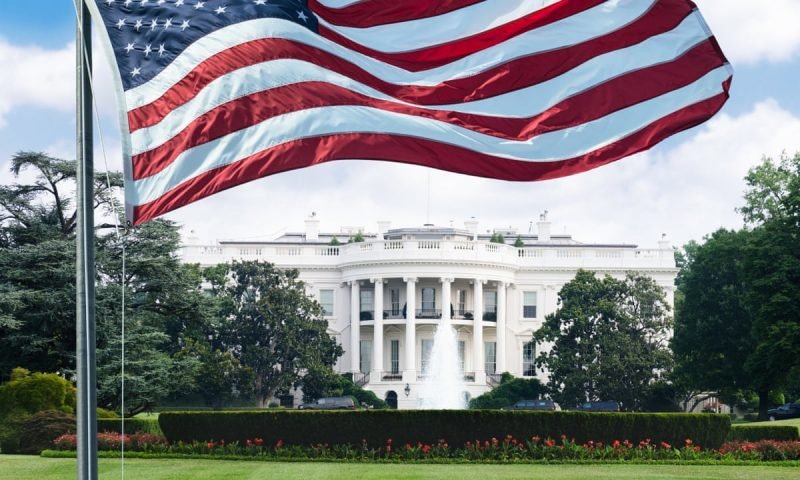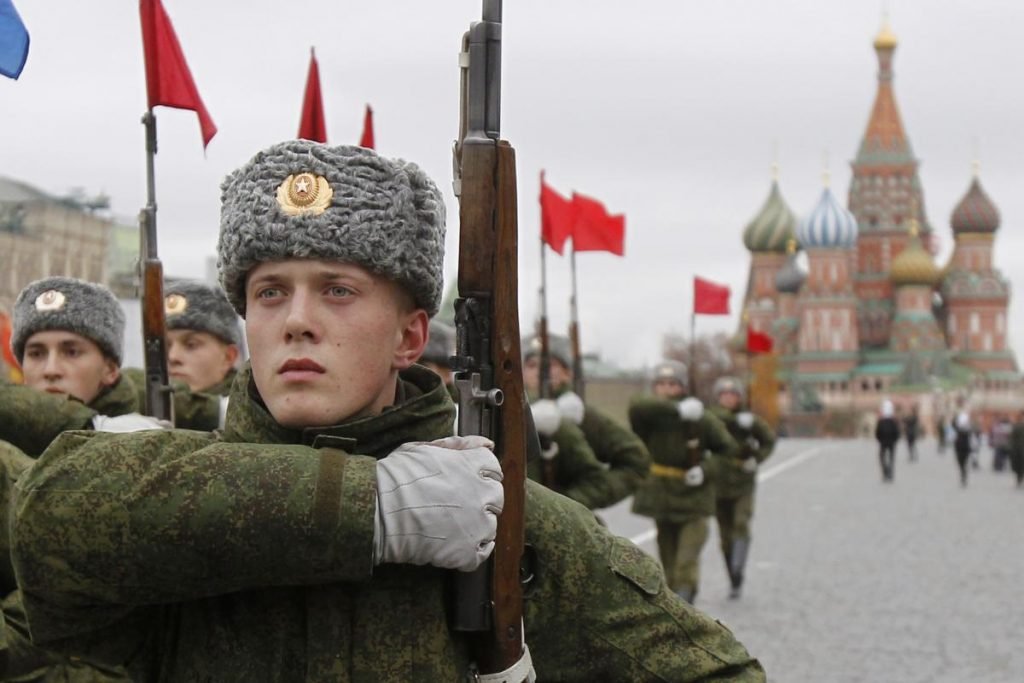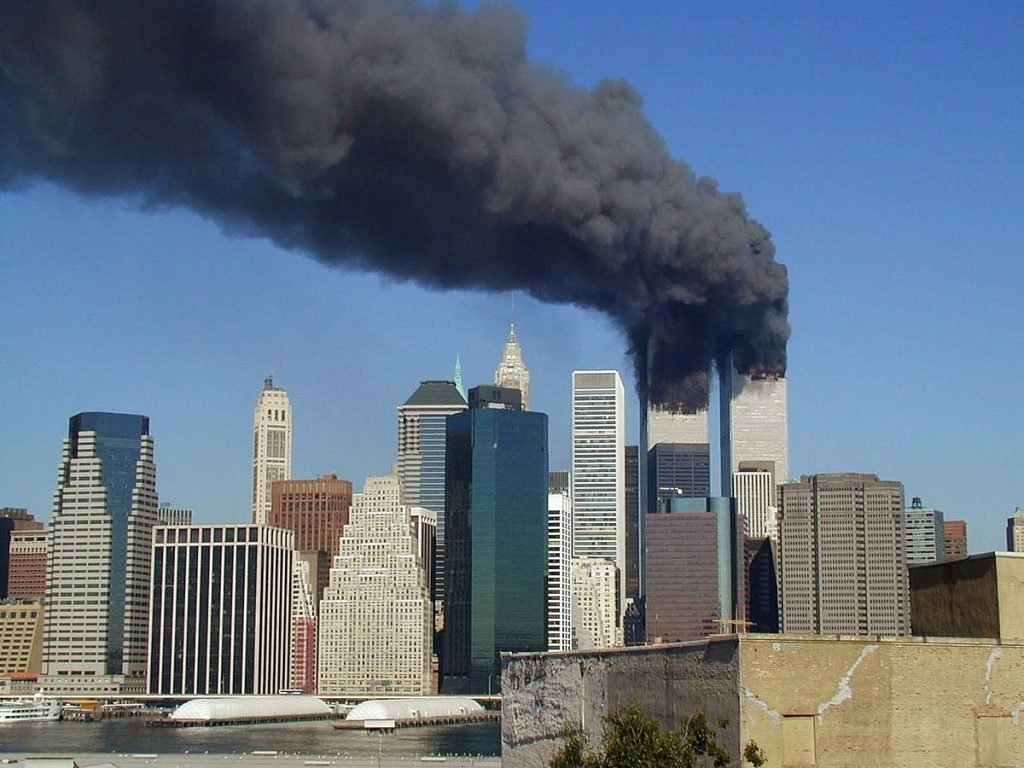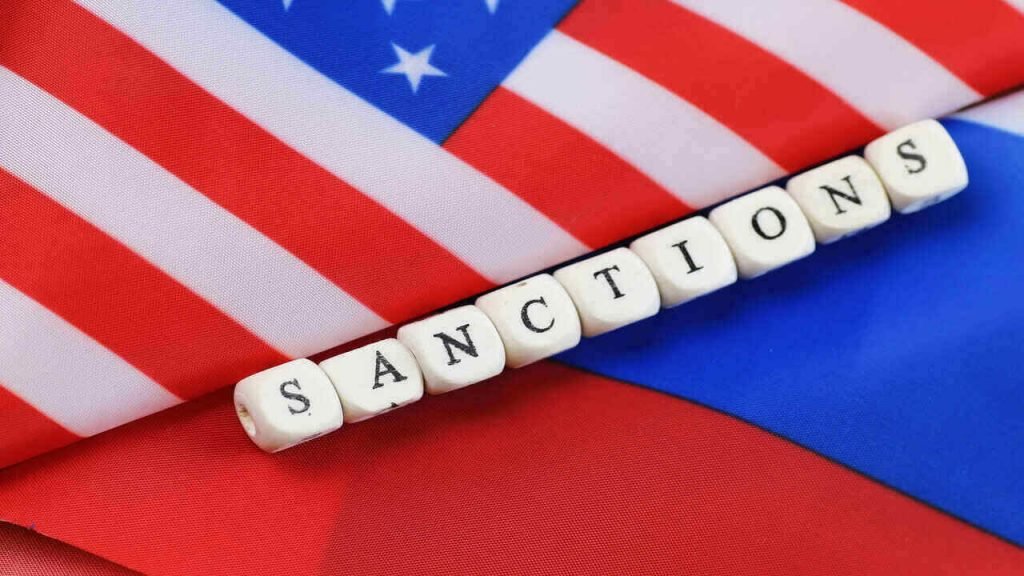Tracing instances and aspects of realism in America’s policy stances in the post-cold war unipolar world

Most wars witnessed in world history had sprung up because of a struggle for power between the warring states or the want of domination by one state or a group of states over others. One such example is that of the Cold War which started after the end of World War II as the United States of America (U.S.A.) and the Union of Soviet Socialist Republics (U.S.S.R.) emerged to form the two centres of international power due to their national prowess. The occurrence of the Cold War (1947-1991) was majorly attributed to the struggle between the two superpowers for acquiring more power for the fruition of other interests.
Both the superpowers tried to establish and expand their sphere of dominance. They sought to get other nations to conform to the ideology promoted by them, capitalism or communism. This would serve to embolden them and increase their sphere of influence.
It led to the division of the whole world into two blocs. The western bloc supported the U.S.A. and its liberal-capitalist ideology and the eastern bloc backed U.S.S.R. and its socialist-communist ideas. It gave the superpowers validation as the more states backed them, the more powerful they became, ideologically and militarily. The Cold War clearly showcased that the major bones of contention and struggle were in sync with the theory of realism in international politics.
‘Realistic’ goals
Realism, in simple terms, suggests that all nations in the international sphere work as per their own national interests. They perform acts that would benefit their state and side-line ideas of morality. National interests are disguised as universal moral ideals.
The arms race that followed the War was due to the problems of ‘security dilemma’ and ‘survival threat’ because of the involvement of the weapons of mass destruction in this equation. Security dilemma is a situation in which actions taken by a state to increase its security cause reactions from other states, which in turn lead to a decrease rather than an increase in the original state’s security.[i]
This means that when U.S.A. acquired ‘x’ new weapons during the War, U.S.S.R. would feel insecure. To reduce this threat, it would acquire ‘y’ weapons. This would then trigger U.S.A.’s insecurity and so on. So, no state would feel secure and the dilemma would continue. Survival threat suggests that the prime concern of the state is the need for continued existence of the state itself. This becomes a prerequisite for the leadership to achieve all other goals. The need of the state’s survival is a common goal of all nations.[ii] These two concepts are interdependent. Because when the state is engaged in a conflict then its security is at stake and in turn so is its survival in the international arena.
Classical Realist thought with proponents such as Hans Morgenthau, Jean Jacques Rousseau, Thomas Hobbes asserts that this drive for acquiring power stems from innate human nature. Here, the Dutch philosopher Baruch Spinoza extended the state of nature theory to the international arena. He pointed out that as man is man’s enemy in the state of nature, similarly one state is another state’s enemy in the international sphere. This tradition evolved to give birth to neorealism with thinkers like Kenneth Waltz and John Mearsheimer. They support the line of thought that the structure of the international sphere, where there is no such world body to act like the government does in the state to control law and order and get citizens to abide by the rules for harmonious living.
Era of invasions during the cold war
Many states were invaded by the superpowers. The motives along with the stance adopted towards moral principles during these invasions are similar to the account given by thinker Thucydides about the conquering of Melos by Athens after the Melian dialogue. He pinpoints the lack of concern for morals and the drive to accumulate as much power as possible by the generals of the ancient polis of Athens.[iii]

Some instances that support this claim are the U.S.S.R. invasion of Hungary in 1956. Soviet forces marched into Budapest to stop Hungary’s departure from the communist bloc as it was announced that Hungary was withdrawing from the Warsaw Pact (the Soviet bloc’s equivalent of NATO). Afghanistan was invaded in 1979, in order to establish a favourable communist government to face and fight the rise of insurgent feelings there.The US had invaded Vietnam to curb the spread of communism in Vietnam and hence to stop it from spreading to all of south-east Asia. Here, all moral claims were side-lined and ended up in great human loss for both the invaders and the invaded party.
Realist thought goes on to emphasise that the interests of each nation is to acquire more and more power to satisfy all other possible needs and requirements in the best terms and conditions for the state itself regardless of unfavourable terms for the other nations. [iv]
It explains that since there is a legitimate government as the topmost authority (whether democratic or autocratic) within a state so moral principles are followed within the state. As there is no such world government that has the consent of all nation-states, which would be accountable to all constituents, these rules are not followed in the international sphere.
The UN is not one such government as it exercises limited powers and is not above its constituent states. So the moral responsibilities and regard for human values are not respected in the international sphere for the simple reason that each country is inward-looking and assumes that they are only responsible to their own fellow countrymen and not to citizens of other nations.
The war on terror and survival
The war of terror, launched as U.S.A.’s drastic retaliation for the 9/11 attacks, was one such incidence of policy stance where the U.S.A. worked on the survival threat as its dominant position was at risk from non-state actors like terror outfit Al-Qaeda.
The step that U.S.A. took was to ignore all moral standards and human rights to arrest and transport whosoever would seem to be involved in the 9/11 attacks. Without regard or permission from any state government, U.S.A. would send these detainees to the naval base in Guantanamo Bay where they were kept in inhuman condition.
The U.S.A. acting on the survival motive exerted all its power to counter this threat to retain its dominant international position. The fact that U.S.A. could not be stopped by any state or international organisation went on to show its supreme position to the world. It gave the message that U.S.A. has the power to take on any security threat in the most aggressive way possible.

This survival motive was articulated well by Machiavelli in ‘the prince’. The prince’s primary aim was to make certain the survival of the state. Even if the actions to attain this aim leads to other people fearing, not loving the prince. This is exactly what U.S.A. did on the ground. Even the UN could not stop this transgression of basic human rights and moral standards. The UN failed to control the U.S.A. exerting its power in a unipolar world and U.S.A. was able to pursue the realistic goal of survival of the state.
Immigration policy and America first
The ‘America first’ concept revived by the Trump administration is based on national interests (a realist concern), as the name suggests in unequivocal terms.
Among other ideas that are promoted under the aegis of ‘America first’ such like trying to correct deficits[v], the president’s stance on immigrants is the most notable that focuses on national interests and side-lines morality. The US has attracted global talent and individuals from diverse backgrounds who found many successful brands.
Trump’s administration banned the entry of people from countries like Syria, Libya, Somalis, Yemen under its executive orders clearly signifies these countries as conflict and zones of terrorism. Its demand for creating a wall along the porous Mexico border to curb illegal chain immigration and acts to separate children from their migrant parents kept in camps have drawn an international backlash.
Policies like a lottery for 50,000 visas available for the fiscal year 2020 are being revised and The country seeks to welcome legally only those who come with merit , skill, love and respect for the country. They seek to let only the qualified enter their borders who are sure to add value to their economy and hence to their national prowess. His attempt to safeguard the borders for American’s benefit by reducing crime terrorism, saving jobs shows pursuing interests as adopting patriotism in the eyes of the world.
Russian answer to Caatsa
In the recent past, Russia has been at the receiving end. The irony is that in a lot of these cases U.S.A. had a major role. Trump had signed the ‘Countering American Adversaries through Sanctions Act’. In lay man terms, it put sanctions on the country that traded with Russia’s defence and intelligence sectors. This would serve as a form of negative reinforcement. This act of America was seriously damaging for Russia as well as other countries like India, Vietnam and Indonesia (all asked for a waiver from CAATSA).[vi]
As a response, after the bill passed, on 28 July 2017, Russia′s foreign ministry announced measures as a response to the bill passed by Congress.
Russia demanded that the U.S. reduce its diplomatic and technical personnel in the Russian embassy and its consulates in St. Petersburg, Yekaterinburg and Vladivostok to 455 persons —equivalent to the Russian diplomats posted in the U.S. — by September 1.[vii]
This has taken US-Russia relationship through a rough patch and Russia has not been able to counter this action and preserve its national interests as satisfactorily like it would have wanted to.

Even the alleged role of Russia in the U.S.A. 2016 elections has blown up in the face with a full-blooded enquiry on against its role to manipulate the results of the presidential election.
Conclusion
Since the Cold War ended to form a unipolar world, U.S.A. has been clearly able to put its national interests before any other consideration which is visible in many stances such as pulling out of the Paris Agreement, Trade Wars with China, and withdrawal from Iran Nuclear deal etc. U.S.A., especially under the Trump administration is boldly following its ‘realistic’ ideas in foreign affairs. Given that U.S.A. has a decisive role to play in all major international organisations from political and security arrangements as UN and NATO to economic institutions as IMF and World Bank, it is likely that it will continue to act ‘realistically’. This was curbed during the Cold War due to the presence of another superpower that would balance its approach. China and fast-growing India pose a challenge to this realism and to some extent protectionism adopted by the American administration.
[i] Wivel, Anders. “Security dilemma INTERNATIONAL RELATIONS” https://www.britannica.com/topic/security-dilemma
[ii] Baylis, John, and Steve Smith and Patricia Owens. “The Globalisation Of World Politics”. U.S.A.: Oxford University Press, 2008.
[iii] Lawson, Stephanie.“Theories of international relations”. U.S.A.: Polity Press, 2015
[iv] Heywood, Andrew. “Global Politics”.UK: Palgrave Macmillan, 2011
[v] Lee, M. (2018, September 21). AP analysis: Other nations adjust to “America first” policy. The Denver Post. https://www.denverpost.com/2018/09/21/donald-trump-america-first-policy/
[vi] PTI. (2018, May 25). Mike Pompeo pushes for CAATSA waiver so that countries like India aren’t affected. The Economic Times. https://economictimes.indiatimes.com/news/defence/mike-pompeo-pushes-for-caatsa-waiver-so-that-countries-like-india-arent-affected/articleshow/64317426.cms
[vii] Roth, A. (2017, July 30). Putin orders cut of 755 personnel at U.S. missions. The Washington Post. https://www.washingtonpost.com/world/putin-orders-cut-of-755-personnel-at-us-missions/2017/07/30/8a4b0044-7555-11e7-8c17-533c52b2f014_story.html


















